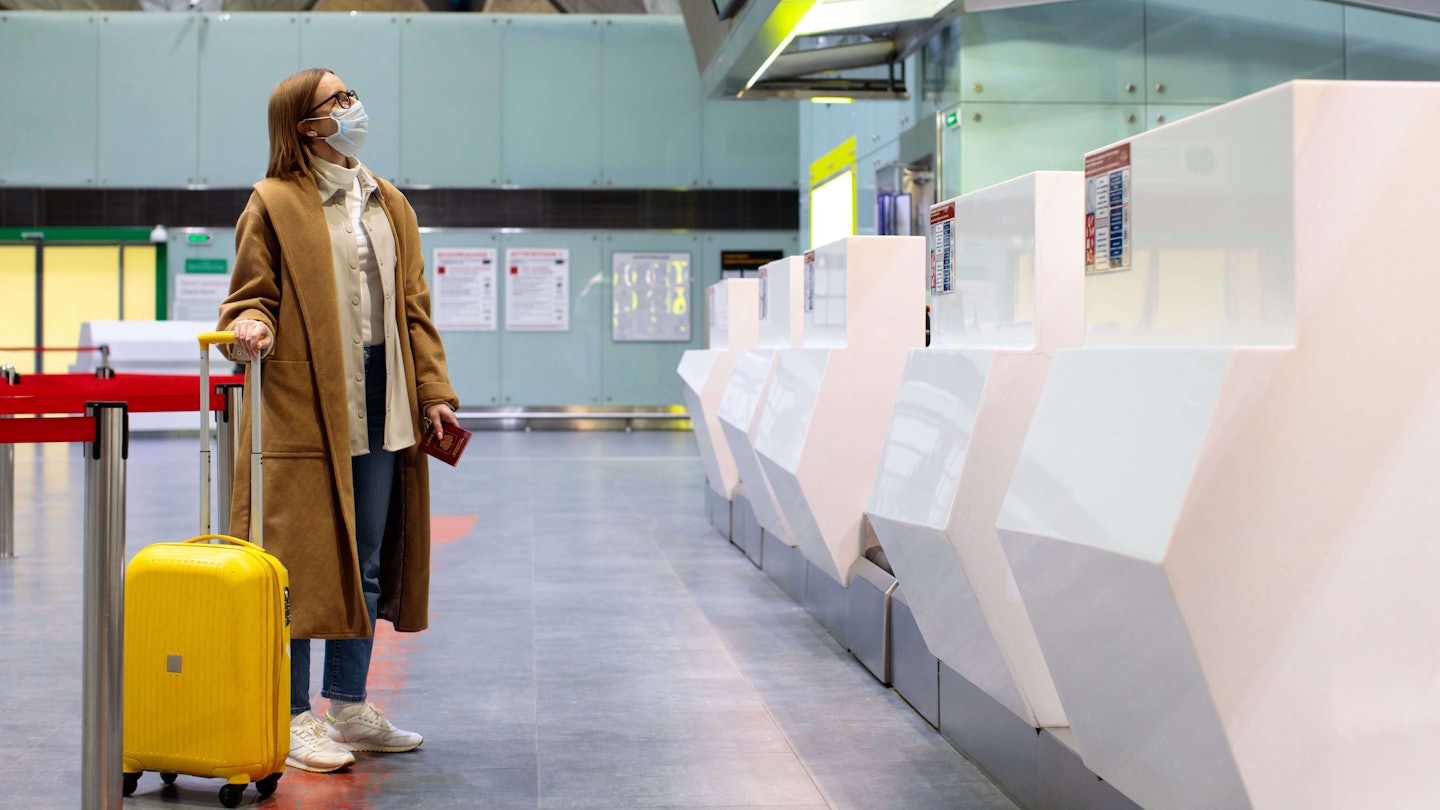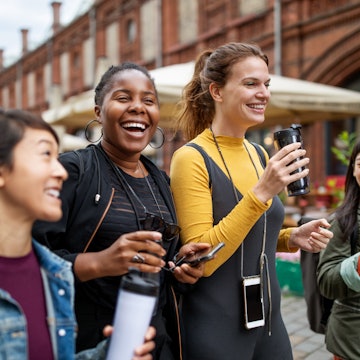

What do you do if you're denied entry to a country? © Dmitry Marchenko / Getty Images
It’s many travelers’ worst nightmare: detained at the border and deported back to where they came from. With COVID-19 vaccination and testing certifications adding a new level of documentation into the mix, what happens if you’re denied entry—due to coronavirus or other reasons?
When and why might I be denied entry to a country on arrival?
It’s incredibly rare for anyone to be denied entry on arrival to a country, not least because airlines are required to check that you have the right documentation before accepting you onto their aircraft. But there are a few ways in which this might occur.
First, the airline might have got it wrong, in which case you’re likely to be put straight back on their plane—and you probably have a good argument that it should be at their expense.
Second, a border guard might also have a problem with you. They might think that you’re intending to work when you’re on a visa or visa waiver programme that doesn’t permit that, or that you don’t have enough money to support yourself on vacation, or that you’re otherwise breaking (or planning to break) the rules.
Third, you might be found with something contraband that you hadn’t declared. Be especially careful when traveling with medication, even if it is over the counter in your country or if you have a prescription. Check with the embassy or foreign ministry of your destination country to ensure that, say, your decongestant, back pills or insomnia medication is permitted.
When and why might I be denied entry to a country at the airport before my flight?
It’s very rare, but there are situations when an airline checks your documentation at the airport and there’s a problem.
These days, you might not have the right COVID-19 vaccination and/or test certification. Study it carefully, especially if:
you’ve been vaccinated with the AstraZeneca, Sinopharm, Sinovac, Sputnik or Johnson & Johnson/Janssen single-shot vaccine
you got two different vaccinations: first AstraZeneca, second Pfizer or Moderna, say, perhaps because of allergic reactions or changing health authority recommendations
you only got one vaccination because you’d already recovered from COVID-19 and that’s what your national health authorities say
you might mistakenly take the wrong kind of test, or it’s outside the validity window—some countries count in hours, others in days, some from boarding and some from landing, so read the requirements carefully
You might have needed to get a visa, an electronic visa, or an electronic travel authorization, but you don’t have one, or it’s expired. If it’s an electronic travel authorization, sometimes the airline can rush you an expedited clearance, but for other options it’s more complicated.
Read more: What is a vaccine passport and do I need one to travel?
You might not have a return ticket—or, your return ticket is on another booking that the airline flying you into the country can’t see in their system, in which case you just have to show the receipts for the second booking.
Another possibility is that your passport might not have enough validity left. Many countries require it to be valid for a certain number of months after your intended date of departure, and some also require it to have been issued within the previous ten years. That latter point is only very rarely a problem, but certain countries add on any remaining validity from your previous passport to new passports—giving you, say, a passport that technically expires ten years and two months after it is issued, but which some countries won’t accept is valid longer than ten years. This has tripped up some travelers to the EU Schengen area in particular.
Do I have to buy my own return flights?
Whether or not you have to buy your own flights depends on why you were detained, and it will depend on the situation, the airline, and whoever you’re dealing with.
The range of options here include them applying your return flight to the flight on which they take you home without charging anything more, doing that but charging a change fee, or requiring you to buy a new ticket—up to and including a full-fare, one-way walk-up ticket.
What about COVID-19? What happens if I tested negative before my flight, but positive when I arrive or after arrival?
This is a really unusual situation and what happens will depend on the country where you are. You’ll likely be legally required to isolate, possibly in a quarantine hotel if the country has them.
Read more: How do you choose travel insurance that covers COVID-19?
This might well be at your expense, so check your travel and travel medical insurance carefully. Try to remain calm, follow medical instructions, contact your embassy, and ride it out.
For more information on COVID-19 and travel, check out Lonely Planet's Health Hub.
You might also like:
What do I do if my flight gets cancelled - and can I get a refund?
What is a vaccine passport and do I need one to travel?
PCR tests for travel: everything you need to know














